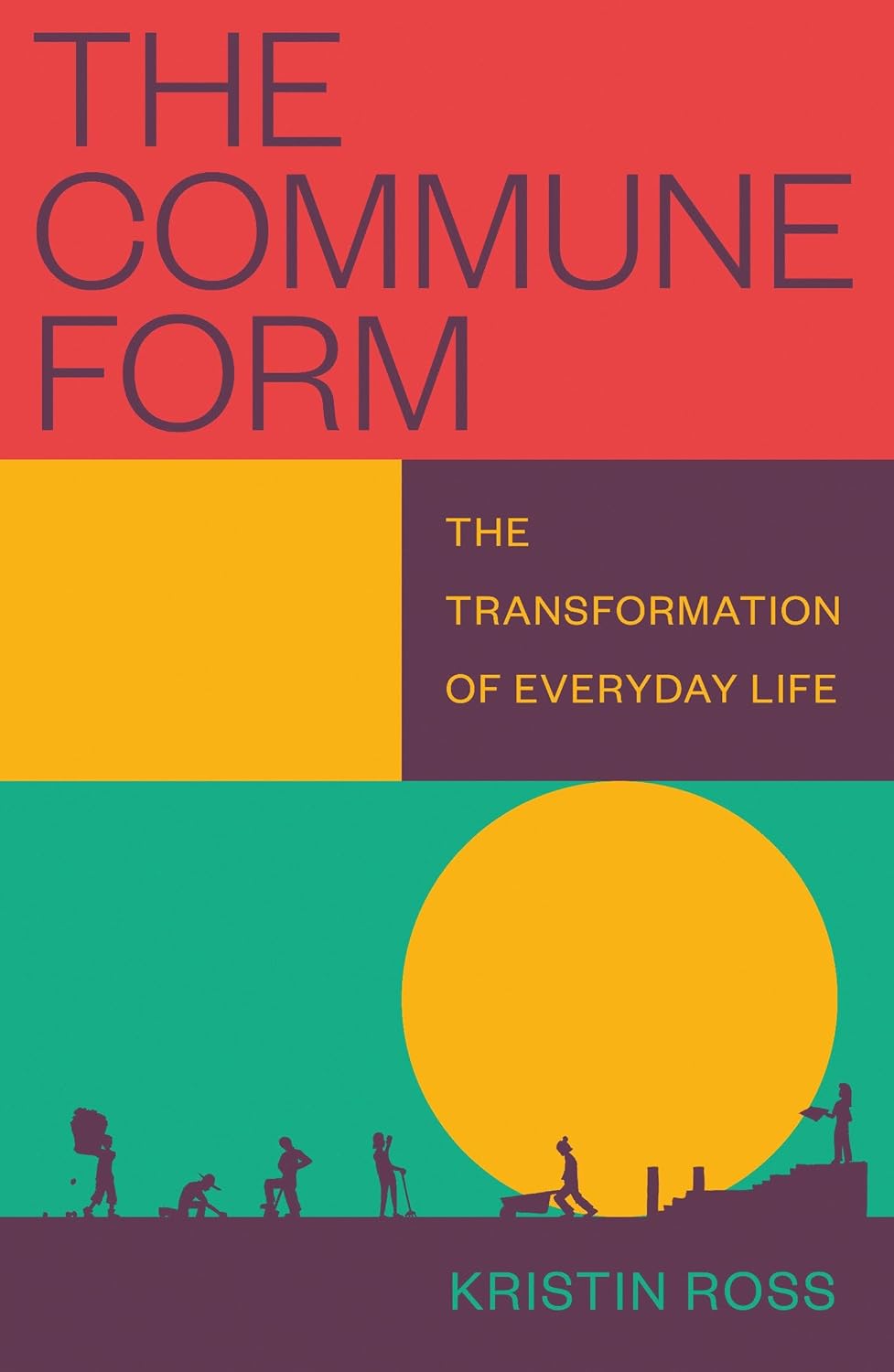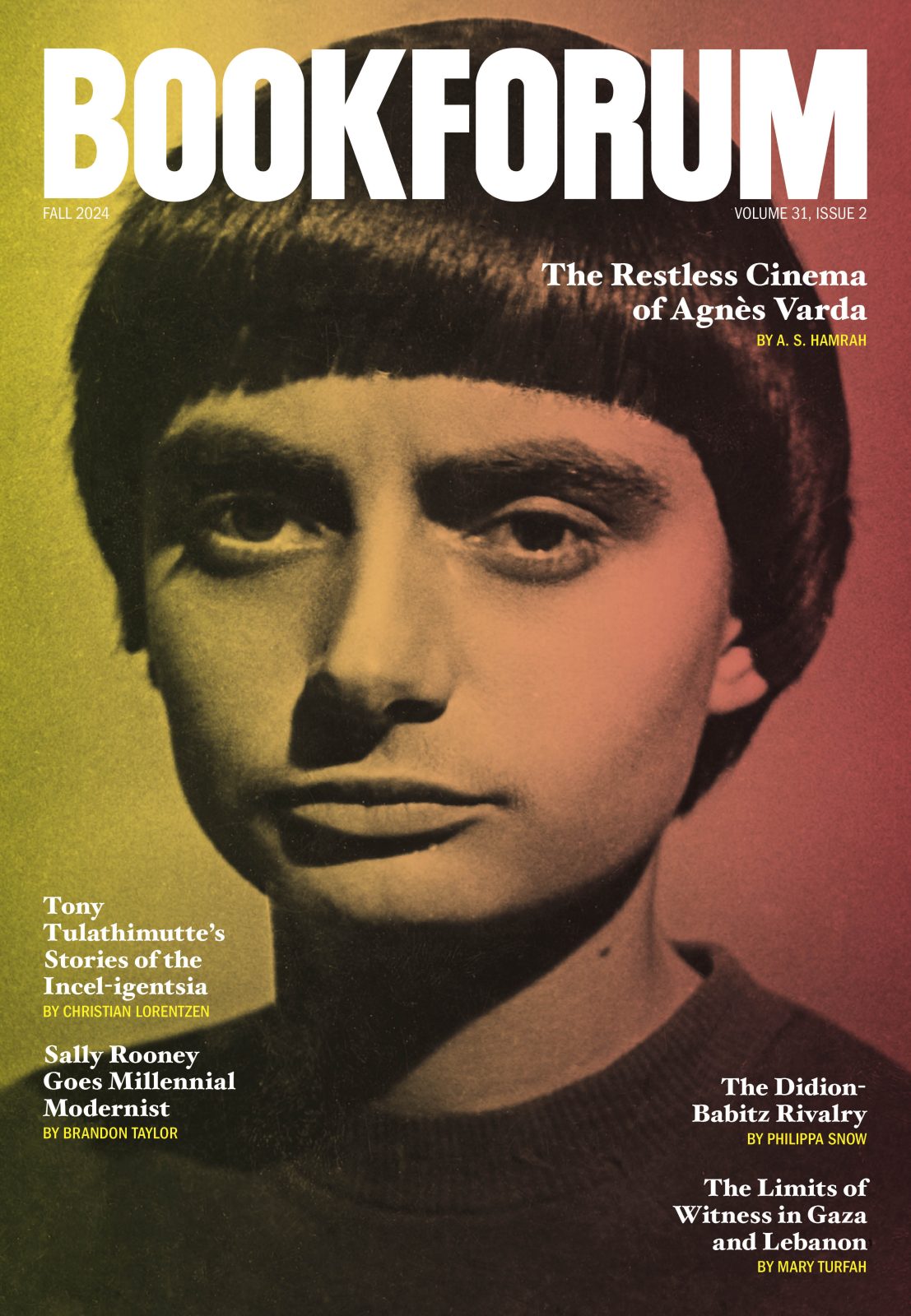
ISN’T MODERN SOCIETY A FUCKING DRAG? Don’t you want to smash it? Don’t you want to create your own life instead of slogging to a job you hate, watching the rich live more vibrantly on tiny screens? There are people in history who did precisely that. They usually ended up shot in the streets, but how alive they must have felt for a little while.
This is the vision the social critic Kristin Ross explores in The Commune Form.The commune is a space for the reinvention of social relations—Marx called the Paris Commune “the political form under which to work out the economic emancipation of labor”—and for the transformation of “everyday life,” a keyword for Ross that appeared in the first sentence of her first book in 1988 and recurs throughout her work. She borrows this concept, along with the notion of “the production of space,” from the French philosopher Henri Lefebvre. What does it look like to “produce” space? Ross gives the example of the factory occupations of the 1960s, which replaced the “rhythms of the assembly line with the unpredictability and sociality of everyday life”: a central site of the reproduction of capital became “a place to make dinners, care for children, study, have discussions, or make art.” To bring everyday life out of its current poverty and into the infinite richness of possibility, we must transform the spatial relations that are inextricable from social relations. We must change space—the way we move in it, the purposes it serves, what we build in it, how we think about it. This is precisely what the Communards did in 1871.
The Paris Commune came about because in 1870 Napoleon III foolishly started a war with Bismarck’s Prussia. This led to the devastating four-month Siege of Paris, during which Victor Hugo ate zoo animals, and eventually to the downfall of the Second Empire. In February 1871 the Third Republic was established under the royalist Adolphe Thiers, whom Thomas Carlyle called “a brisk man in his way.” Too brisk, in fact, for Parisian lefties, who feared the new republic wouldn’t be all that republican. (It didn’t help that Thiers allowed the Prussian Army to hold a victory parade on the Champs-Élysées—like, read the room.) The people of Paris set about organizing their own affairs, backed by the predominantly working-class National Guard, which killed two generals in skirmishes with the French regular army and forced the royalist regime to retreat to Versailles. The Communards proclaimed a revolutionary government—which was in practice “no government . . . an anonymous power,” in the words of the Communard Arthur Arnould. They pulled down the statue of Napoleon in the Place Vendôme and erected barricades in the streets. The army put an end to the Commune, massacring thousands, after a couple months, but this ecstatic interlude has since occupied an outsized place in the left’s political imaginary. Lenin danced a jig in the snow when the Bolshevik government outlasted the Paris Commune by one day.

The seductive allure of this fleeting, doomed alternative, a beacon to the Situationists and the soixante-huitards, is obvious. “Paris was living its own life, following its own will,” Lenin wrote a few decades later, sounding a bit like Guy Debord, a bit like Cyndi Lauper. What the Commune offered Marx was the example of its “actual working existence.” This phrase from Marx’s The Civil War in France is another key for Ross: she quotes it in The Emergence of Social Space: Rimbaud and the Paris Commune (1988), in Communal Luxury: The Political Imaginary of the Paris Commune (2015), in The Politics and Poetics of Everyday Life (2023), and now in The Commune Form.
Implicit in Marx’s formula is the idea that the Paris Commune not only showed a way to communism but was itself communism in action, a unity of theory and praxis. Its “actual working existence” meant, as the anarchist Peter Kropotkin put it, that the Commune was both “the necessary setting for revolution and the means of bringing it about,” both content and context, means and end. The commune form, therefore,
as form, does not lend itself to a static definition, unalterable through time; it does not unfold in the same way everywhere around the world. It is not a concept. In fact it is inseparable from its various historical instantiations.
One Communard who was there in 1871, put it this way, with a note of dazzlement: “We had nothing but an anonymous power, representation by Monsieur Tout le Monde. At that moment, and this is a point on which I can’t insist too much, because it’s so important and it seems to have gone unnoticed, the Commune already in fact existed.” The commune comes into being where it must. To work toward it is already to have brought it about.
Of course there must be commonalities among the commune form’s instantiations if the word “form” is to have any meaning. Ross writes in Communal Luxury that the Parisian Communards effected “the free organization of . . . social life according to principles of association and cooperation,” which sounds like a reasonable working definition of the form to me. Analyzing Paris from the perspective of “Communard thought” in Communal Luxury,Ross refrained “from harnessing the Commune’s reverberations in any more explicit way to the events and political culture of the present,” while The Commune Form extrapolates from the principles of the Commune to connect it to later sites of struggle: the Nantes Commune of 1968; and three occupations in defiance of state expropriation of land to build airports in France, Japan, and Canada.
Indeed, the opposite of the commune would seem to be the airport, whose construction is catastrophic for local flora, fauna, and farmers. Ross writes that
from the 1960s on, the airport, or rather the international airport, had emerged as the leading symbol throughout of the world of what are now called pharaonic, state-imposed infrastructural projects . . . built on debt and contracted in the name of the public in order to finance private profit. . . . Invariably, they wreak enormous devastation on the natural and material environment where they are located. To give just one example, consider what it took to render the Quebecois farmland receptive to jet landings: the first runway alone necessitated over 7 million cubic feet of concrete, 680 million pounds of gravel, 1.4 billion pounds of sand, and 85 million pounds of hot-mix asphalt.
Notably, none of the three airports were constructed because the area needed an airport. In every case, “a fully functioning international airport already existed nearby.” The state converts communities into ecological dead zones, hubs for wealthy travelers that double as malls—not because local people are demanding a service but because their needs are at best irrelevant and often inimical to the accumulation of capital.
For Marx, this is how capitalism got started: in “primitive accumulation,” enclosure of the commons, the appropriation and privatization of land use. This form of state violence is ongoing, as the Marxist geographer David Harvey has shown. The commune form, Ross writes, “is actually nothing more than an attempt to gain ground in the historic fight against enclosure.” It is “territory as a praxis produced by space-based relations,” a defense of the commons, of space itself, as a site reserved for “everyday life” rather than the production of surplus value. Ross paraphrases Harvey: “farmland is either farmland or it has become something else—a mall, or an army training ground.” Stop Cop City comes to mind for Ross—“the Weelaunee Forest outside Atlanta will continue to be a forest, or it will become a militarized training ground for police”—as do the Black Panthers, the Zapatistas, Standing Rock, the gilets jaunes,and other groups who courageously refuse to comply. All are marked by a defense of territory and the creation of “an alternative ecological society . . . a fabric of lived solidarities . . . in which economic rationality does not prevail.”
Lefebvre wrote, in The Production of Space,“Change life! Change Society! These ideas lose completely their meaning without producing an appropriate space . . . new social relations demand a new space, and vice-versa.” The commune is that appropriate space—the anti-airport, the anti-mall, not a space to pass through to get to other spaces, not a space in which to labor for someone else, but a space in which to fully live. The commune form says: this land belongs to you and me.
Michael Robbins is the author of Walkman (Penguin, 2021), Equipment for Living: On Poetry and Pop Music (Simon & Schuster, 2017), and other books.
